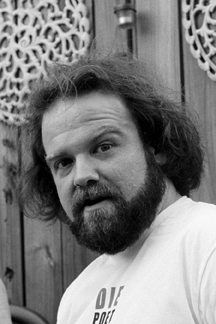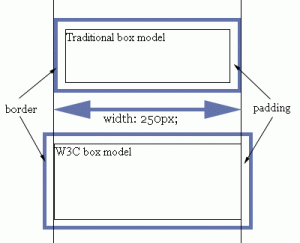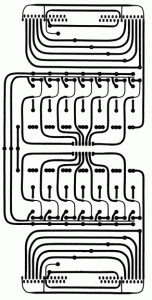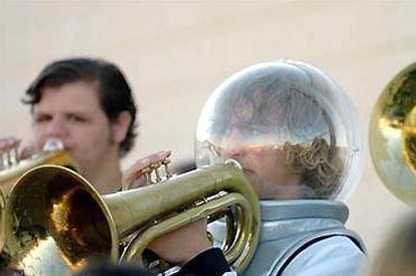There’s a nice reading log of Ander Monson’s Vanishing Point up at the NYTimes book blog, Paper Cuts. It asks about the future of the book, where the book is a, uh, book.
NYTea Time
Hey, it’s really nice outside so I want to go walk over the Williamsburg bridge, but I actually got an email inquiring about what happened to these little roundups, and directing my attention specifically to this review of the new Ander Monson by marketing guru David Shields. Shields is ecstatic about Vanishing Point: Not a Memoir, and he left me intrigued, which is more than I can say that any of the seven hundred “think-piece”-reviews of Reality Hunger: A Manifesto did for my interest level in it–so, point for Monson, I guess. I have very good memories of Other Electricities, less good memories of Vacationland, and didn’t quite get around to reading Neck Deep, though I heard him read from / speak about that book once, and remember enjoying it–though not what I enjoyed exactly–so anyway it’s good to see something new from Monson, and maybe I’ll get around to this one. Okay, what else? Well, Walter Kirn’s got the cover story, with a take-down of the new Ian McEwan. Here’s the whole first paragraph.
According to the perverse aesthetics of artistic guilty pleasure, certain books and movies are so bad — so crudely conceived, despicably motivated and atrociously executed — that they’re actually rather good. “Solar,” the new novel by Ian McEwan, is just the opposite: a book so good — so ingeniously designed, irreproachably high-minded and skillfully brought off — that it’s actually quite bad. Instead of being awful yet absorbing, it’s impeccable yet numbing, achieving the sort of superbly wrought inertia of a Romanesque cathedral. There’s so little wrong with it that there’s nothing particularly right about it, either. It’s impressive to behold but something of a virtuous pain to read.
It goes on from there for two pages. Joe Queenan has an essay about why he won’t read books that feature sports teams he hates. Elif Batuman reviews Those Who Wait, the new novel by Olga Grushin. Anne Lamott has written another book with the word “bird” in the title. And Joseph Salvatore looks at the new Adam Thirlwell, a novel about–among other things–a geriatric libertine. Good times at the Times! And now, if you’ll excuse me–THE BRIDGE.
5 Glots of Snoo
1.) We would rather watch art made than the art itself.
Doesn’t work for books.
“Hey, wanna come over and watch me write?”
“I would rather shoe a snail.”
2.) mud luscious press has a nifty submissions process and a sale. Why not use both?
3.) Aimee Bender interview.
4.) There is a better word than the one you have down. That’s a problem but a koan type of problem. Eventually, you will stop and settle on one word (not the best word). Why? Why then? Is it maddening or gladdening to go through this process? Define the term strike. I thank you.
5.) Just got Ander Monson’s Vanishing Point in the mail! Holy shit. This book bleeds over into the web and then the web bleeds back. More on this later. Monson’s not only ahead of the curve, he’s troweling the curve for us, cut, tamp, curl.
A node has been added to Ander Monson’s site with new corollary info and text for his apparently next forthcoming book Vanishing Point (Graywolf, April 2010). Lots to read and sneak through, I think he is even calling them e-galleys. I now have a new supreme text anticipation.
Ander Monson Will Hack You

Ander Monson
I re-read Ander Monson’s brilliant “Essay as Hack” today and thought I might share a section for anyone out there who is writing memory-based stories or personal essays.
The brain reconfigures memory, reorders events, resets them among other events to form narrative, causality: it creates sense. The mind tells itself stories about what happens to it. So me saying that I did X because of Y rests on thousands of assumptions about who or what I think I am, how I thought of myself then—transmuted into how I think about myself now.
…Any sort of attempt to sort meaning from the past is fraught in thousands on thousands of ways, exponentially splintering. The more you think about it the more it asymptotically approaches impossibility.
This is not to suggest we shouldn’t attempt it. The attempt is glorious, and attempting rewires the brain. It moves the circuitry around, attaching a new conclusion to an action, reconstructing self. In a way, thinking about the self hacks it.
Ander Monson’s BOX
 Ander Monson has sneakily snuck a hyper link text object onto the web, at his suddenly updated website, which now features a section called The Swarm, containing several new essays and weird links, as well as the above mentioned hyper link text object, having to do with a BOX.
Ander Monson has sneakily snuck a hyper link text object onto the web, at his suddenly updated website, which now features a section called The Swarm, containing several new essays and weird links, as well as the above mentioned hyper link text object, having to do with a BOX.
I got pretty far into it and plan to go back and play some more. It does some cool, new stuff I think, based often in Ander’s vivid and multi-edged prong of new layers and new space, ie the launch text of this:
Every word is contained by space, white, visual, semantic. Being a word, it is a segment of something larger, potentially. Alone it is isolated, in a box. As you look into the box you are in the box.
Go play.
The site also mention’s a new book by Ander, but no info directly yet or where, when, or what.
However it comes, I hope it’s soon.
Ander Monson’s electronic boatload
 If you’re a fan of Ander Monson (which, you should be: if you haven’t read, in particular, his story collection OTHER ELECTRICITIES, you are missing a hell of a book), then you may or may not know about Ander’s personal website based around his books, which in the case of the last two releases in particular is a host of a whole slew of amazing and weird unreleased texts from Ander’s diagrammatic brain.
If you’re a fan of Ander Monson (which, you should be: if you haven’t read, in particular, his story collection OTHER ELECTRICITIES, you are missing a hell of a book), then you may or may not know about Ander’s personal website based around his books, which in the case of the last two releases in particular is a host of a whole slew of amazing and weird unreleased texts from Ander’s diagrammatic brain.
The Apocrypha section of the Other Electricities section of the site (yeah, each layer is layered more and more deeply often, and the NECK DEEP section often seems a maze of its own ilk), has a ton of lists, letters, and other deleted scenes material, much of which like what you might find on Ander’s DIAGRAM.
It’s a good place to get lost and a good model for authors wanting to make their own websites things people will actually want to look at and come back to.

